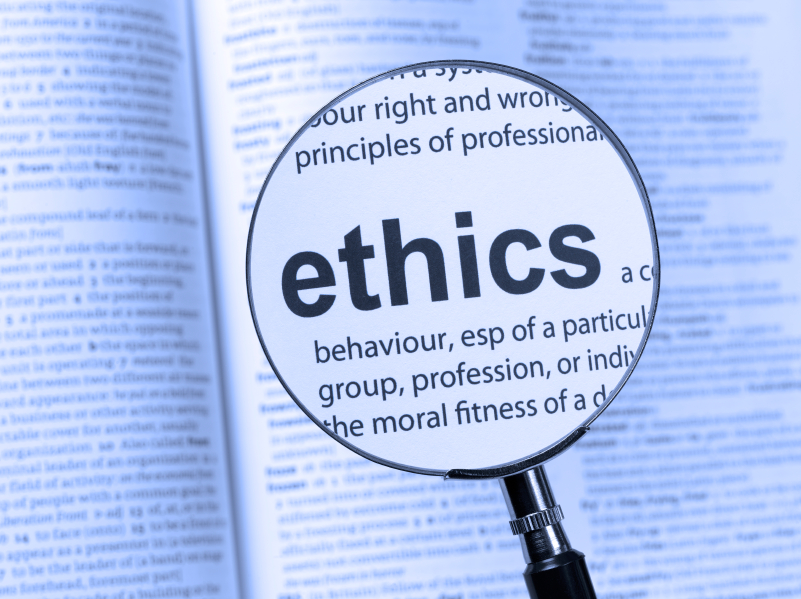Ethics in Market Research Surveys: What You Need to Know
Fri, 17 Oct 25
Ethics in Market Research Surveys: What You Need to Know
Market research surveys are a cornerstone of modern business strategy. They help companies understan

Market research surveys are a cornerstone of modern business strategy. They help companies understand consumer preferences, track trends, and make data-driven decisions. Yet, with the power of surveys comes an equally important responsibility: ethical conduct.
When surveys are designed or executed without respect for ethical principles, the results can harm respondents, damage brand trust, and compromise the quality of data. In today’s data-conscious world, respecting privacy, transparency, and fairness isn’t just “nice to have” it’s essential.
This guide explores the fundamentals of ethics in market research surveys, why they matter, and how to put them into practice.
Why Ethics Matter in Market Research
The insights gained from surveys often influence major business moves—from product development to hiring strategies. But if the process isn’t ethical, the following risks emerge:
- Loss of trust: Respondents are less likely to engage if they feel misled or exploited.
- Poor data quality: Dishonest practices or biased survey designs lead to unreliable results.
- Legal consequences: Regulations like GDPR and CCPA require strict compliance with data privacy standards.
- Reputation damage: Ethical breaches can spark negative publicity that erodes brand credibility.
An ethical approach ensures respondents feel respected and valued while businesses gather accurate, actionable insights.
Key Principles of Ethical Market Research
To run ethical surveys, researchers should follow these core principles:
1. Informed Consent
Participants must know what the survey is about, how their responses will be used, and whether their answers will remain anonymous. A clear introduction that explains purpose and confidentiality builds trust.
2. Privacy and Confidentiality
Respecting personal data is non-negotiable. Researchers should collect only the information necessary, anonymize responses when possible, and store data securely. Sharing or selling data without permission is a major violation of ethical standards.
3. Transparency
Deceptive survey practices like disguising marketing as research undermine credibility. Participants should be told who is conducting the survey, why it’s being conducted, and how the findings will be applied.
4. Avoiding Bias
Leading questions, manipulative answer options, or excluding certain demographics can skew results and unfairly represent reality. Ethical surveys aim to capture authentic opinions, not force specific outcomes.
5. Respect for Vulnerable Groups
When researching children, seniors, or marginalized populations, extra care is required. Consent should involve guardians where necessary, and questions must be sensitive, respectful, and appropriate.
6. Voluntary Participation
No one should feel pressured to participate in a survey. Respondents should also have the right to stop at any time without penalty.
Common Ethical Challenges in Market Research
Even well-intentioned organizations can face ethical dilemmas. Here are some common challenges and how to address them:
- Data misuse: Collecting more personal information than necessary or storing it longer than needed. → Solution: Limit data collection and follow strict retention policies.
- Deceptive incentives: Offering rewards that aren’t delivered or misrepresenting prize draws. → Solution: Be transparent about incentives and honor commitments.
- Survey fatigue: Bombarding respondents with lengthy or repetitive surveys. → Solution: Keep surveys concise and respect participants’ time.
- Hidden agendas: Using surveys primarily as sales tools rather than research. → Solution: Separate research from marketing to maintain authenticity.
Legal and Regulatory Considerations
Ethics in market research aren’t just about goodwill they’re tied to legal frameworks. Depending on your audience, compliance with laws like these is crucial:
- GDPR (General Data Protection Regulation): Applies to anyone collecting data from EU citizens. It requires consent, data minimization, and the right to be forgotten.
- CCPA (California Consumer Privacy Act): Grants California residents rights to know, delete, or opt out of data collection.
- Children’s Online Privacy Protection Act (COPPA): Regulates data collection from children under 13 in the U.S.
Ignoring these laws can lead to costly fines and reputational fallout.
Best Practices for Ethical Survey Design
To create ethically sound market research surveys, follow these practical tips:
- Explain the purpose upfront: Make sure participants know why they’re being surveyed.
- Ask only what’s necessary: Avoid intrusive or irrelevant questions.
- Use neutral wording: Prevent bias by keeping questions clear and impartial.
- Protect anonymity: When possible, avoid linking responses back to individuals.
- Offer fair incentives: Rewards should be meaningful but not manipulative.
- Test your survey: Run a pilot to identify potential ethical issues before launch.
The Business Case for Ethics
Ethical practices aren’t just about compliance they’re a business advantage. Companies that prioritize ethics in research often see:
- Higher participation rates: People are more willing to respond when they feel respected.
- Better data quality: Honest responses lead to more reliable insights.
- Stronger relationships: Ethical engagement fosters trust and long-term loyalty.
- Positive brand reputation: Responsible research sets your brand apart in a competitive market.
Final Thoughts
Ethics in market research surveys go beyond checking legal boxes they define the integrity of your data and the credibility of your organization. By respecting participants’ rights, being transparent, and avoiding manipulative practices, you not only protect your business but also enhance the quality of your insights.
In a world where data is more valuable than ever, the companies that succeed will be those that treat survey respondents not as numbers, but as people deserving of respect and honesty.
✨ Ethical surveys don’t just collect data—they build trust, loyalty, and long-term value.